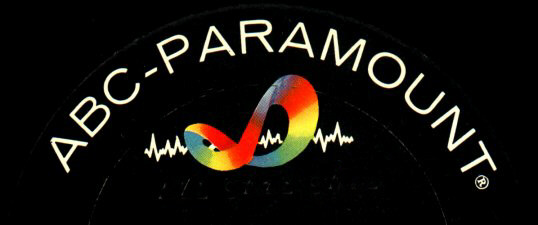 ABC-Paramount Records Story
ABC-Paramount Records StoryThe Am-Par Record Corporation was formed in New York City in 1955, as a subsidiary of American
Broadcasting-Paramount Theaters, Inc. The record label was called ABC-Paramount. The President of
the company was Samuel Clark and the National Sales Manager was Larry Newton. The heads of A&R
for the label were Don Costa and Sid Feller, although Morty Craft, Johnny Pate and Creed Taylor also
handled production for the company. The output of the label was pop, jazz, rhythm and blues, children's
and spoken word. ABC-Paramount had a subsidiary label called Apt, although it is believed that only
singles were issued on the label and therefore is not included in this discography. In the early 1960s,
Impulse, a jazz label subsidiary, was established, and in the mid-'60s a blues label subsidiary, Bluesway,
was formed. The short-lived Probe label was formed for psychedelic rock music in 1968.
In October, 1959, orchestra leader Enoch Light and his partners sold their labels to ABC-Paramount.
These included Audition, Command Performance, Colortone, Grand Award and the Waldorf Music Hall.
All of these labels were run by Light and were based in Harrison, New Jersey. Two of the labels, Grand
Award and Command, continued to operate under ABC, Grand Award sporadically until 1966 and
Command until 1976. Enoch Light continued as head of A&R for the Command and Grand Award labels.
This discography covers Grand Award, Command and Waldorf Music Hall, although Waldorf Music Hall
probably stopped issuing records before the purchase by ABC.
ABC purchased the Dunhill label from Lou Adler in 1966 and the Duke/Peacock labels from Don Robey
in 1973. ABC-Paramount also distributed a number of labels, including Anchor, Blue Thumb, Chancellor,
Colonial, Deb, Fargo, Hunt, LHI (partially), Royal, Shelter (partially), Sire (partially), Tangerine, Topsy,
and Wren. The discographies of Anchor, Blue Thumb, Chancellor, Fargo, LHI, Shelter, Sire and
Tangerine are included. The other labels issued no albums.
ABC-Paramount was the first major label to be formed after the start of the rock and roll era. ABC had an
open mind about this teen market and tried to capitalize on it. The company had a regular habit of
licensing finished masters from independent producers and even purchased released records from small
regional record companies to release on a national scale.
Don Costa signed Paul Anka to the label. Anka, a 15 year old singer/song writer from Canada, who had
already made an obscure single called "I Confess" for Modern Records. In May of 1957, when Anka won
a trip to New York City, he stayed with some Canadian friends known as the Rover Boys who recorded
for ABC and they suggested that he see Don Costa. Paul played a song for Costa he had written about a
girl in Canada called Diana. Costa signed Anka and recorded the song as his first single for ABC-
Paramount. It became a teen anthem in the summer of 1957, staying on the national record charts for 6
months. The song, about a teenage boy in love with a much older girl (who didn't know he was alive)
was
an elegy of self pity which became a regular staple of teen music from then on.
Anka wrote most of the songs he recorded, including, "Put Your Head On My Shoulder", "Lonely Boy",
"Puppy Love" and "My Heart Sings," as well as songs for other artists, such as Buddy Holly's "It Doesn't
Matter Anymore." Paul Anka was one of the most versatile singers in the "teen idol" category, having 16
chart hits and 10 albums for ABC-Paramount. Anka left ABC in 1962 for RCA Victor, where he moved
away from his teen idol status and became a mainstream pop singer. Anka continued his prolific song
writing for other artists, his most famous songs probably being "My Way" for Frank Sinatra and "She's a
Lady" for Tom Jones. He also wrote the theme for Johnny Carson's Tonight Show.
For more authentic rock and roll than staff A&R men like Don Costa could come up with, ABC went to
independent producers. In the summer of 1957, Joe Bennett wrote a song called "Black Slacks" which
he
recorded with his group, the Sparkletones, and sold the master to ABC. It became a national hit in
August of that year aided by the exposure it received on the ABC television show American
Bandstand. ABC purchased "At the Hop" by Danny and the Juniors from Singular Records and it
became a Number 1 national hit in late 1957. Danny and the Juniors followed that up with the classic
anthem "Rock and Roll is Here to Stay" in February 1958. That same year ABC leased a recording of
"Short Shorts" by the Royal Teens (which included future Four Seasons member/writer Bob Gaudio) and
it was a big hit. Also in 1958, Vito Picone and Artie Venosa wrote a song called "Little Star," which they
recorded with their vocal group, the Elegants, for Hull Records. ABC-Paramount leased the record and
released it on their Apt Record subsidiary and it also became a number one hit that summer.
The Poni-Tails, a vocal group made up of three teenaged girls from Cleveland, Ohio, were signed to
ABC by Don Costa. Their first release, "Just My Luck to Be Fifteen," was not too successful, but they
followed that up with the top-10 hit "Born Too Late," which was the same theme as Paul Anka's "Diana,"
but from a girl's perspective. The teenaged public was still buying that theme, apparently. "Born Too
Late" and most of the purchased hits above are contained in the excellent compilation album, titled "A
Million or More Best Sellers" on ABC-Paramount 216.
Lloyd Price also came to ABC through a license record deal. Price had hit in 1952 with Specialty records
with "Lawdy Miss Clawdy." Price's career at Specialty was cut short when he was drafted into the US
Army soon after, but upon getting out of the Army in 1956, Price moved to Washington D.C. and formed
his own record label, KRC (Kent Record Company). Late in 1956 he recorded a song he had written
called "Just Because," and released it on KRC. The song received some regional airplay and was sold to
ABC for national distribution. In January, 1957, it became a moderate hit on ABC-Paramount. Price
himself signed with Atlantic Records, and continued to release his records on the Atlantic-distributed
KRC label without too much success. In 1958, Sid Feller signed Price to an ABC-Paramount contract,
and, Price soon reworked an old blues song called "Stack-A-Lee" into the pop oriented "Stagger Lee,"
and had a number one hit with it. Sid Feller and Lloyd Price were able to develop a New York version of
the New Orleans sound that Dave Bartholomew had used five years earlier with Fats Domino and Price
himself. "Stagger Lee" was Price's only number one hit, but he followed it up with several more chart hits
in 1959: "Where Were You (On Our Wedding Day)", "Personality" and "I'm Gonna Get Married." Using
the New York studios, Price's hits had much better sound than the usual independent rock-and-roll
records of the day, and most of the ABC hits were available in wonderful stereo sound. Price left ABC in
the early 1960s, bought a night club in New York City called the Turntable, and started the record labels
Turntable and Double L, recording himself and other artists such as then-unknown Wilson Pickett.
ABC-Paramount was impressed with Price's success in the pop music market. Since Price was a former
R&B singer, they looked for another R&B singer that they could break into the crossover market. They
came up with Ray Charles who was recording for Atlantic Records. Ray Charles had a 10 year string of
R&B hits and had just had his first pop hit with "What'd I Say," which reached number 6. It was Atlantic's
misfortune that in 1959, just when Charles scored with "What'd I Say," his contract at Atlantic was
expiring. ABC-Paramount stepped in and offered Charles a contract that the small Atlantic label could
not match. With ABC, Charles was given an increased artist royalty plus the producer's royalty, his own
label named Tangerine, plus the concession that the rights to his recordings would revert to him when
he
left the label. With ABC's big money and marketing behind him, Ray Charles became an institution. His
first of many hits for the label was of an old standard, "Georgia On My Mind," which became his first
number 1 pop hit. The album that contained "Georgia on My Mind" [The Genius Hits the Road,
ABC 355] was also a big seller. In 1961, his next number one hit was "Hit the Road Jack," which was a
harbinger of Charles' next musical direction, country and western music. Charles released the album
Modern Sounds in Country and Western Music [ABC 410] in 1962, a single from the album "I
Can't Stop Loving You," was his next number one hit and one of the biggest hits of the early 1960s.
While producing pop hits, the versatile Charles also recorded very successful jazz albums for ABC.
Charles continued recording for ABC into the early 1970s, one of the best selling artists ABC ever had.
In 1959, ABC-Paramount started releasing the recordings of Cliff Richard in the US. Richard, saddled
with the moniker "the British Elvis" in his early years, had no chart success in the US (other than a minor
chart appearance with "Living Doll" in 1959), despite of his popularity in the UK where he had hit after
hit.
ABC did release two albums by Richard, ABC 321 and ABC 391, again without success. When Cliff
started registering chart hits in the mid-1970s in the U.S. for EMI, after almost two decades as one of
England's top stars, he issued an album here with the tongue-in-cheek title I'm Nearly Famous.
Fats Domino came to ABC-Paramount in 1963 from Imperial Records. Domino had not had a major hit
since "Let the Four Winds Blow" in 1961, and he continued his chart slide at ABC. Unlike Lloyd Price,
whose style easily fit into thew New York pop sound, Domino sounded stifled in the format, and the
material he recorded at ABC pales in comparison to his earlier work at Imperial. ABC released three
albums by Domino, ABC 455, 479 and 510.
In spite of the success that ABC-Paramount had in the rock and roll field, the company's bread and
butter was straight-ahead pop music. Most of the album releases were popular or jazz; Steve Lawrence,
Edyie Gorme and Ferrante & Teicher were staples of the company. Typical of a 1960s pop label, a
surprisingly high percentage of the ABC-Paramount output was ethnic music, including Irish, calypso,
polka, flamenco and Hawaiian music.
In 1961, ABC signed B.B. King to the label for a term beginning the following year. King was a very
influential blues guitarist who had been recording for the RPM and related Kent labels since the early
'50s. ABC made a few changes to the way he was recorded, framing his vocals against a larger
orchestral backdrop. The arranger and producer for the sessions was Johnny Pate. The sound was fuller
than his RPM recordings, but the essential character of King's music remained. Most of his ABC singles
sold between 50 and 100 thousand copies. Johnny Pate suggested that they record B.B. King on his
home turf, that is, make a recording of a live performance. The album "B.B. King Live at the Regal" [ABC
509] was recorded live in Chicago on November 21, 1964. It was a great album that showcased what
B.B. King had been doing for years on the "Chitlin Circuit". When the British performers like the Rolling
Stones and Eric Clapton mentioned that B.B. King was a big influence on them, he gained credibility with
the young white audience and his records starting selling in greater numbers. In 1970, "The Thrill is
Gone" became his only Top 20 popular chart entry.
ABC formed the Bluesway subsidiary in 1966, and they seemingly signed every major bluesman
available, including Jimmy Reed, John Lee Hooker, Otis Spann, Joe Turner, Eddie "Cleanhead" Vinson,
T-Bone Walker, Jimmy Rushing, Jimmy Witherspoon, Charles Brown, Roy Brown, and Brownie McGhee
& Sonny Terry. B.B. King's releases were also put on Bluesway. The Bluesway label operated into 1974
but most people would agree that the majority of the artists on Bluesway made their best recordings on
other labels. One act that first appeared on Bluesway was not a traditional bluesman, but a group of
white musicians known as the James Gang, led by guitarist/singer/songwriter Joe Walsh (who later
ended up as a 1970s star both as a solo artist and with the Eagles). The James Gang was probably the
most significant power trio to come along other than Cream. Only their first album was on Bluesway, and
with the success of that album, the James Gang was moved to the ABC parent label.
Of the early ABC-Paramount albums, quite a few were jazz releases. In 1961, ABC-Paramount started a
jazz label subsidiary called Impulse. Impulse was able to sign an impressive list of top flight jazz artists,
including John Coltrane, Coleman Hawkins, Shelly Manne, Freddie Hubbard, Art Blakey, Charles
Mingus, Shirley Scott, Archie Shepp, Yusef Lateef, Sonny Rollins, Ornette Coleman and Chico Hamilton.
The Impulse label operated to 1979, but by that time it was releasing mostly compilations of material
recorded earlier.
In 1966, Paramount was dropped from the name and the label became ABC.
In 1975, ABC signed Poco away from Epic Records. Poco was a proven commodity who at Epic had
produced several critically acclaimed albums. Their first album on ABC was the excellent "Head Over
Heels" [ABC 890]. ABC released three additional Poco albums, but none were as good as their first on
the label.
The most successful rock band in the seventies on ABC was probably Steely Dan. Steely Dan was
songwriter/instrumentalists Water Becker and Donald Fagen along with Denny Dias, Jeff Baxter, Jim
Hodder and David Palmer. Their debut album Can't Buy a Thrill contained two major hits, "Do It
Again" and "Reeling in the Years." Their third album, Pretzel Logic, contained the smash hit
"Rikki, Don't Lose That Number." In 1974, Becker and Fagen essentially dismissed the other band
members and became Steely Dan themselves, using session musicians. Steely Dan signed with Warner
Brothers in 1976, but still owed ABC two albums. The first, Aja, was released in 1977 and
produced the three hits "Peg", "Deacon Blues", and "Josie". After this, Steely Dan did not release
another
album for three years because of litigation between ABC and Warner Brothers. In 1980, the album
Gaucho was finally released which produced the major hit "Hey, Nineteen," but by this time the
ABC label had ceased to exist, and the album was released on parent label MCA.
Also in the 1970s, ABC entered into the soul market in a major way, signing Isaac Hayes, the Four Tops,
the Dells and the Dramatics. Hayes came to ABC after the bankruptcy of Stax Records. Hayes was a
soul superstar and was given his own record label named after his first smash album Hot Buttered
Soul or "HBS". His first album on HBS was Chocolate Chip, a best seller. His later releases
fared less well, and in late 1977 Hayes left ABC for Polydor Records. The Four Tops moved to ABC in
1975, having spent 1972-75 on the Dunhill subsidiary label. They didn't have much chart success on
ABC, but did release five albums. The Dramatics did quite well on ABC; their albums are uniformly good
and Shake It Well [ABC 1010] is outstanding.
The mid-1970s at ABC were an unfortunate time for music lovers. To save space, and consequently a
few
dollars, ABC systematically went through their vaults and discarded all tapes except the finished masters
for most artists. Consequently, few multitrack masters or outtakes exist for early ABC material, and the
ABC masters on compact disc sound worse than they could have if the "cleanup" program hadn't
occurred. Some masters, such as the Ray Charles masters which reverted to him after his leaving the
label, escaped from this short-sited "cost savings," but in general, the ABC catalog of today is nothing
like
what it should be, given the rich musical heritage of the label.
In 1979, ABC Records was sold to the Music Corporation of America (MCA). In mid 1979, ABC ceased
to
exist as a record label. The most successful albums on ABC were reissued on MCA.
The ABC-Paramount and associated labels story and discography were compiled using our record
collections, The American Record Label Directory and Dating Guide, 1940-1959 by Galen Gart,
Schwann Catalogs from 1953 to 1980, a Phono-Log from 1963, and various other
sources. Information on unreleased Bluesway albums came from ilpopolodelblues.com, a Website by
Ernesto DePascale. Some of the information about Enoch Light and the Command label was obtained
from Spaced Out: the Enoch Light Website.
Tracks are listed in order they appear on the albums, when known. The double slash (//) is indication of
the separation between sides. Titles listed without a double slash (//) are listed as printed in Phono-
Log or the New Entry section of the Schwann Catalogs, and the separation between side one
and side two is unknown. Titles with an asterisk (*) have the titles listed alphabetically since track order
is
unknown. For those albums where the track-by-track stereo content is indicated, (S) means true stereo,
(E) means electronic (fake) stereo, and (M) means mono.
We would appreciate any additions or corrections to this discography. Just send them to us via e-mail. Both Sides Now Publications is an information
web
page. We are not a catalog, nor can we provide the records listed below. We have no association with
ABC-Paramount or ABC Records. Should you be interested in acquiring albums listed in this
discography
(all of which are out of print), we suggest you see our
Frequently Asked Questions page and follow the instructions found there. This story and
discography
are copyright 2002, 2004 by Mike Callahan.
 ABC-Paramount Records Discography, Part 1 100-199 (1955-1957)
ABC-Paramount Records Discography, Part 1 100-199 (1955-1957)
 ABC-Paramount Records Discography, Part 2 200-299 (1957-1959)
ABC-Paramount Records Discography, Part 2 200-299 (1957-1959)
 ABC-Paramount Records Discography, Part 3 300-399 (1959-1961)
ABC-Paramount Records Discography, Part 3 300-399 (1959-1961)
 ABC-Paramount Records Discography, Part 4 400-499 (1961-1964)
ABC-Paramount Records Discography, Part 4 400-499 (1961-1964)
 ABC-Paramount Records Discography, Part 5 500-599 (1964-1967)
ABC-Paramount Records Discography, Part 5 500-599 (1964-1967)
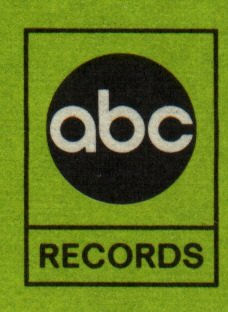 ABC-Paramount Records Discography, Part 6 600-699 (1967-1969)
ABC-Paramount Records Discography, Part 6 600-699 (1967-1969)
 ABC-Paramount Records Discography, Part 7 700-799 (1969-1974)
ABC-Paramount Records Discography, Part 7 700-799 (1969-1974)
 ABC-Paramount Records Discography, Part 8 800-899 (1973-1975)
ABC-Paramount Records Discography, Part 8 800-899 (1973-1975)
 ABC-Paramount Records Discography, Part 9 900-999 (1975-1977)
ABC-Paramount Records Discography, Part 9 900-999 (1975-1977)
 ABC-Paramount Records Discography, Part 10 1000-1136
(1976-1979)
ABC-Paramount Records Discography, Part 10 1000-1136
(1976-1979)  ABC-Paramount Records Discography, Part 11 The ABC Collection
(1976)
ABC-Paramount Records Discography, Part 11 The ABC Collection
(1976)  ABC-Paramount Records Discography, Part 12 16 Greatest
Performances (1974-1975)
ABC-Paramount Records Discography, Part 12 16 Greatest
Performances (1974-1975)  ABC-Paramount Records Discography, Part 13 Miscellaneous
Issues
ABC-Paramount Records Discography, Part 13 Miscellaneous
Issues  ABC-Paramount Records Discography, Part 14 Soundtrack
Series (1964-1970)
ABC-Paramount Records Discography, Part 14 Soundtrack
Series (1964-1970)  ABC-Paramount Records Discography, Part 15 Promotional Issues
ABC-Paramount Records Discography, Part 15 Promotional Issues
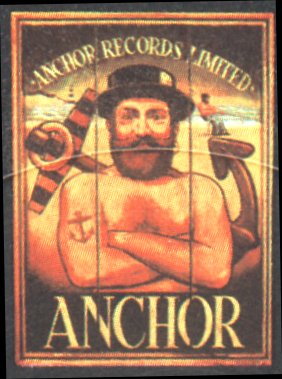 Anchor Records Discography
Anchor Records Discography  Banana Records Discography
Banana Records Discography 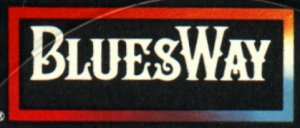 Bluesway Records Discography
Bluesway Records Discography 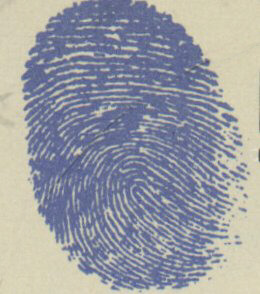 Blue Thumb Records Discography
Blue Thumb Records Discography  Command Records Discography
Command Records Discography 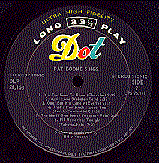 Dot Records Story
Dot Records Story 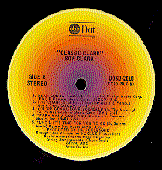 ABC-Dot Discography
ABC-Dot Discography 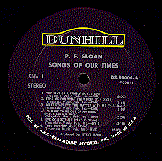 Dunhill Story
Dunhill Story 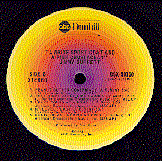 Dunhill Discography Includes ABC-Dunhill
Dunhill Discography Includes ABC-Dunhill Fargo Records Discography
Fargo Records Discography 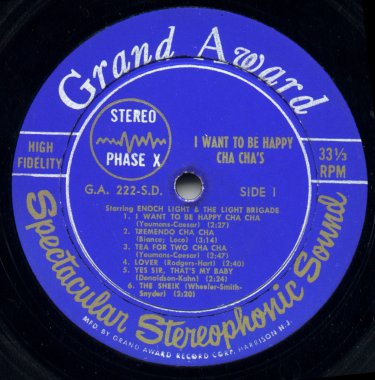 Grand Award Records Discography
Grand Award Records Discography 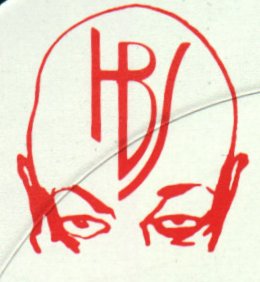 HBS Records Discography Hot Buttered Soul
HBS Records Discography Hot Buttered Soul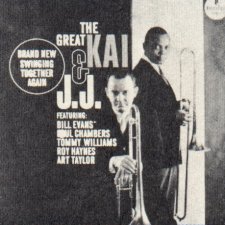 Impulse Records Discography
Impulse Records Discography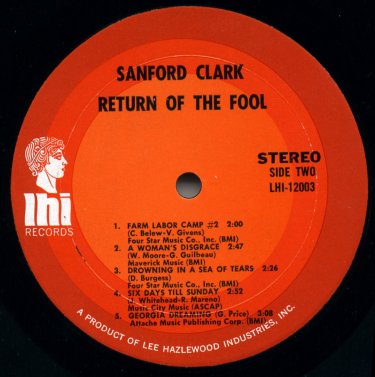 LHI Records Discography Lee Hazelwood Industries
LHI Records Discography Lee Hazelwood Industries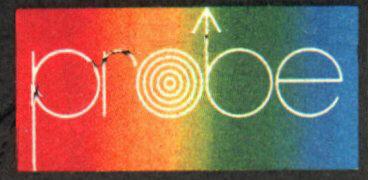 Probe Records Discography
Probe Records Discography 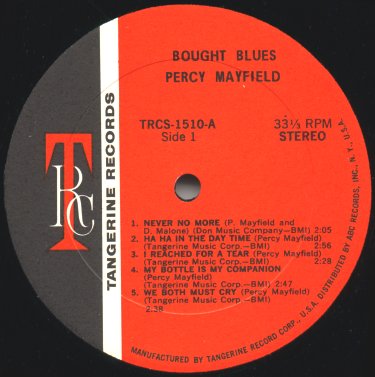 Tangerine Records Discography
Tangerine Records Discography  Back to the Discography Listings Page
Back to the Discography Listings Page  Back to the Both Sides Now Home Page
Back to the Both Sides Now Home Page